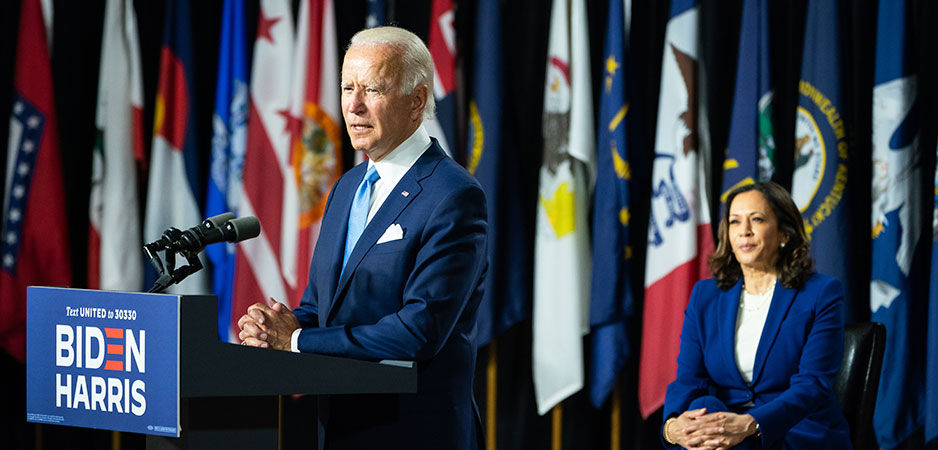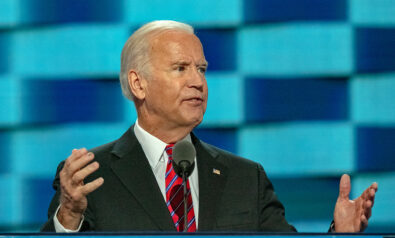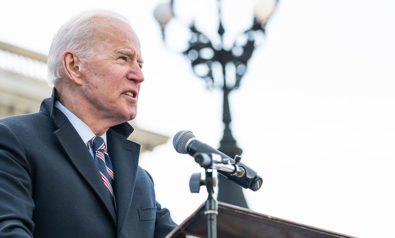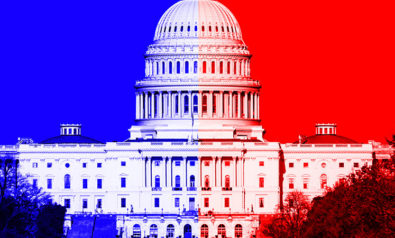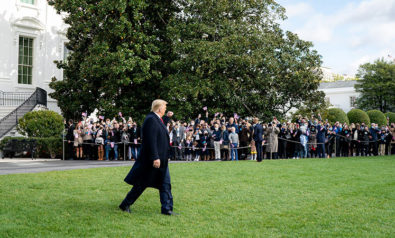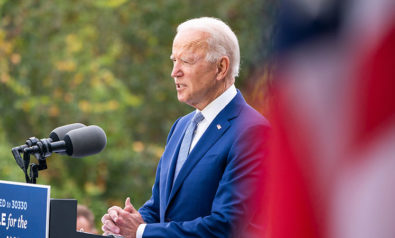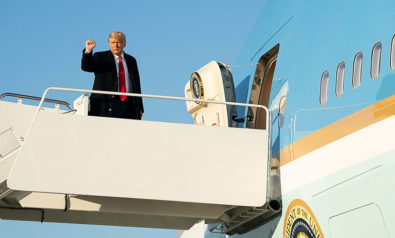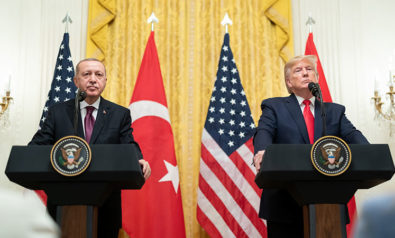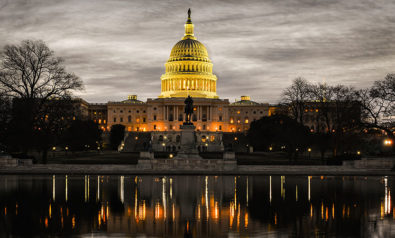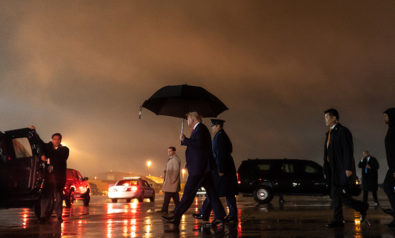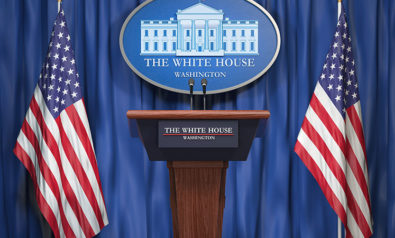US foreign policy has shifted dramatically from just a brief 20 years ago. This is not the making of Donald Trump, Xi Jinping or Vladimir Putin. Rather, they are symptoms of forces that have been building since the post-Soviet era. With the ascendency of the US as the global superpower and the “Washington Consensus” as the pillar of economic development, it was easy to assume that Pax Americana was our legacy to the world.
360° Context: The 2020 US Election Explained
In less than three generations, we are now less sure of our leadership and concerned — as are other nations — with the contradiction of a great power festering internally. Yes, the US certainly retains the world’s strongest military, economy, number of Nobel Prize winners and sometimes even Olympic gold medals. But America’s leaders are unsure of its place in the world, and they disagree on key issues: climate change and the environment, sustainable economic growth, support for international organizations, reengineering the social contract and similar deep-seated concerns.
The US in the Region
It is no surprise that there are many opinions on what US foreign policy in the Middle East and North Africa (MENA) region will look like under an administration led by Joe Biden or Donald Trump. The only clear agreement is that there is no going back to 2000, 2008 or 2016. The world has changed in many respects. While we can discern a pattern of Trump’s preferences, Biden’s policies would reflect what he and his team learned from their time in the White House under Barack Obama and, hopefully, what he has learned in his almost 50 years of being in Washington.
Opinions about a return of Trump’s world vision run the gamut from doomsday to what could be better? For example, writing for Brookings, Thomas Wright exclaimed that “a second Trump term would make a lasting impact on the world right when it is at a particularly vulnerable moment. U.S. alliances would likely crumble, the global economy would close, and democracy and human rights would be in rapid retreat.”
This is hardly the view of the president’s supporters. They believe that international alliances, the global economy and promoting democracy and human rights have not secured stability or prosperity for the US, so why continue with policies that do not serve America’s vital interests? This brings us to the nub of the question: What are those interests that are literally worth fighting for?
On the macro-level in the MENA region, it used to be simple: Israel and oil, with a secondary nod to trade and arms sales. This is no longer the case. Trump has put Israel on the road to control over its future by pressuring Iran and Hezbollah, continuing bilateral defense arrangements that enhance Israel’s qualitative edge, sealing the normalization of relations between the Israelis and some Arab countries, and ensuring that the UN Security Council will never pass another annoying resolution challenging Israel’s worldview.
In world energy markets, Saudi Arabia has found itself outmaneuvered as the US can shift the supply paradigms to Asian markets by increasing its exports, which now makes America a more dangerous competitor than Russia. Even in arms sales and commerce, the US finds itself in tough competition with Russia, China and a host of regional producers — from Turkey to France and the UK.
Regarding who are US allies and who are not, it appears that Trump favors leaving the Middle East and North Africa to its own devices, which includes supporting leaders who reflect his values of disdain for democratic limitations on their exercise of decision-making. This includes Turkey’s Recep Tayyip Erdogan, Egypt’s Abdel Fattah el-Sisi, Saudi Arabia’s Mohammed bin Salman and the UAE’s Mohammed bin Zayed. Trump’s penchant for transactional diplomacy is well illustrated by his treatment of the Kurds, Iraqis, the Syrian opposition, Turks, Iranians and others, often viewing diplomacy as a zero-sum competition.
Does this mean a Trump foreign policy in the MENA region is without merit? Not if you are a supporter of Israel’s security, a hard-line approach on Iran’s dysfunctional role in the region and beyond, pro-arms sales as a tie that binds the US to its friends, and ending what seem to be “endless wars” that make no sense to many American voters.
A Second Trump Administration?
If Trump wins a second term in office, his administration would further refrain from direct action in places like Yemen, Libya, Jordan, Morocco, Tunisia, Algeria and Egypt, again focusing on the benefit to US interests as the guiding principle. For weak states like those in North Africa as well as countries such as Lebanon, it will continue to be a tug-of-war within the State Department as to how best to support US interests in any bilateral relationship. The bigger the country (Egypt), the better endowed with energy resources (Algeria) or the more likely to be convinced that normalizing ties with Israel will be tolerated by its citizens (Sudan), the more attention it will get. As has been noted by a former US ambassador, “This will become a major priority of the next Trump administration and they will make foreign aid contingent on normalization agreements.”
How this shakes out for Morocco and Saudi Arabia, both of which are targets of US-Israel diplomacy, is not clear as the two countries have special ties to Jerusalem not easily superseded by realpolitik. Don’t plan on seeing any reduction in US support for the Saudis in Yemen unless the Senate goes to the Democratic Party, which may force the president to deal with his friends in the Gulf.
Somalia remains an outlier, although its fits and starts toward democracy may draw the attention of policymakers who realizes the threat of the geostrategic encroachment of China and Russia in the Horn of Africa. As for Mauritania and Djibouti, like many Americans, most members of Congress can’t find them on a map, which leaves these countries open to the jaws of Russia and China.
The great powers game in the MENA region is just beginning to be engaged as China has expanded its ports to the Red Sea and the Mediterranean. Its economic diplomacy is making inroads in a long and patient march to North Africa. Russia is not leaving Syria anytime soon and will continue to press Lebanon and Egypt to accept military assistance, as it will also do in Iran, much to the detriment of US–Israel interests.
It would be quite short-sighted to minimize the roles of Iran and Turkey as regional powers in being able to affect key issues: Libya, Lebanon, Syria, eastern Mediterranean energy, Hezbollah, Hamas, the Muslim Brotherhood, Qatar, the use of mercenaries, arms sales and taking risks that are considered illogical to some Washington policymakers. Each must be considered on its own terms and with a close eye on their often expressed interests and weakening domestic support. While a paper can be written on each of these countries, suffice it to say that a second Trump administration will have to use much greater diplomatic finesse in convincing Erdogan to work with rather than against Washington’s interests.
And a Biden Administration?
The biggest challenge to an incoming Biden administration is to indicate how it will retain the best policies of the Obama administration while introducing initiatives that will strengthen perceptions of US commitment to act decisively. Many people in the Middle East and North Africa look at President Obama’s hesitation to act firmly in Syria and Libya, the hands-off treatment over Hosni Mubarak in Egypt, and the uneven commitment to human rights as indications of weakness and inconsistency.
A Biden administration would begin from a different set of values that define different interests than the Trump White House. Ironically, Joe Biden’s values have more in common with the internationalist agendas of Bill Clinton, George W. Bush and George H.W. Bush than with the current Republican administration. The cornerstones of Biden’s platform include the primacy of diplomacy, building relationships and alliances, emphasizing multilateralism for conflict-resolution, and greater attention to human rights and rule of law.
As an open letter of endorsement for Biden by former US ambassadors and Middle East experts states, while “each country faces its own unique issues, the core complaints of poverty, corruption, and a scarcity of freedom are a common challenge.” Many of Biden’s positions are aspirational — for example, assuming that the right combination of sticks and carrots will bring Iran back to the bargaining table while Russia and China are already working to bolster the Iranian regime militarily and economically.
Promoting human rights and democratic values are front and center, but one wonders how those values resonate with the current generation of leaders, many of whom ignore and suppress expressions of dissension and calls for change. Part of Biden’s pledge is to support economic and political reforms, which may be opposed by those regimes he seeks to move toward. These reforms include greater inclusiveness and economic development for the young, women and marginalized groups.
Biden claims that his administration would not countenance regimes that deny the basic civil rights of their citizens, nor ones built on widespread corruption and cronyism or those that meddle in the affairs of neighboring states. There is a gnawing fear among pro-Israel Americans that he will veer from his traditional uncritical support for Israel and insist on an end to actions that undermine the possibility of a two-state solution between the Israelis and Palestinians. These include halting the construction of Israeli settlements in the West Bank and stopping the annexation of Palestinian territory. Biden has already noted that he will restore economic and humanitarian assistance to the Palestinians and reopen the US Consulate in East Jerusalem that serves the Palestinian communities.
Regarding Lebanon, the former vice president favors assisting its civil society and citizens to develop and implement policies that will be inclusive, and also supporting a dynamic state that reflects democratic values of equality and fairness. He mirrors the Trump administration in promising to continue support for the Lebanese armed forces. Biden also recognizes the need to sustain extensive humanitarian assistance to Syrian refugees and host communities in Jordan, Lebanon and Turkey. What Biden won’t do, according to his statements, is continue to tolerate support for Saudi Arabia’s war in Yemen and its pursuit and punishment of dissidents and critics inside the kingdom and elsewhere.
While no specifics are mentioned regarding Biden’s policy on Syria beyond “standing with civil society and pro-democracy partners on the ground,” his campaign platform maintains the role of US leadership in the coalition to defeat the Islamic State group and restore stability and promote a political solution in partnership with others in the region.
Although not an Arab country, Iran plays an outsized role in the Middle East. Biden has already noted that he will renegotiate the Joint Comprehensive Plan of Action — the 2015 nuclear deal with Iran — with a broader focus on ending Tehran’s regional interference, support of terrorism and militias, and production of missiles. A similar agreement tailored to the specifics of Erdogan’s endgame in the region is also critical if any of the goals mentioned by a Biden administration are to be realized.
While these goal statements are well-crafted, the lack of details — while understandable — raises concerns considering challenges, such as needing to reenergize a dispirited US diplomatic corps, indifferent or hostile players in the region, and unsure allies in Europe and the Middle East and North Africa. The critical need to focus on America’s domestic economic and psychological revival in the coming years will also compete with international priorities. Of course, the disposition of the races in the Senate and House of Representatives are also critical to closing the gap between aspiration and implementation.
The authoritarian regimes in the MENA region prefer the devil they know. Yet the youth, women and those who are marginalized are desperate for changes that incorporate their aspirations and are built on equality, justice and opportunity. Donald Trump and Joe Biden are both known in the Middle East and North Africa. It will be quite interesting to see how the region reacts on November 4.
The views expressed in this article are the author’s own and do not necessarily reflect Fair Observer’s editorial policy.
Support Fair Observer
We rely on your support for our independence, diversity and quality.
For more than 10 years, Fair Observer has been free, fair and independent. No billionaire owns us, no advertisers control us. We are a reader-supported nonprofit. Unlike many other publications, we keep our content free for readers regardless of where they live or whether they can afford to pay. We have no paywalls and no ads.
In the post-truth era of fake news, echo chambers and filter bubbles, we publish a plurality of perspectives from around the world. Anyone can publish with us, but everyone goes through a rigorous editorial process. So, you get fact-checked, well-reasoned content instead of noise.
We publish 2,500+ voices from 90+ countries. We also conduct education and training programs
on subjects ranging from digital media and journalism to writing and critical thinking. This
doesn’t come cheap. Servers, editors, trainers and web developers cost
money.
Please consider supporting us on a regular basis as a recurring donor or a
sustaining member.
Will you support FO’s journalism?
We rely on your support for our independence, diversity and quality.


